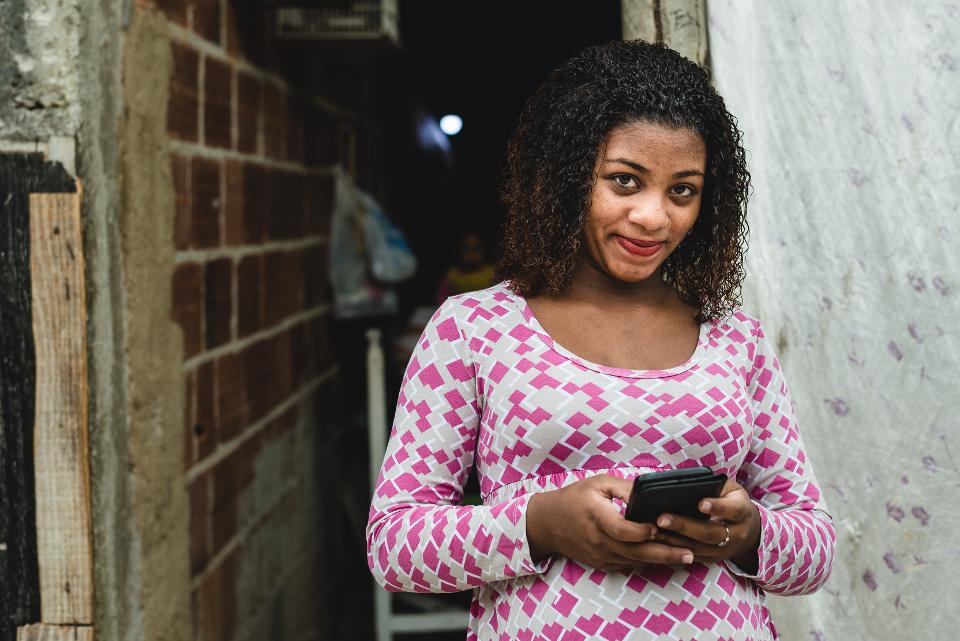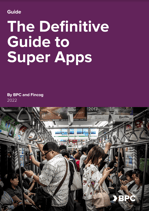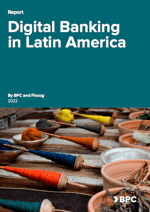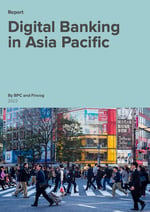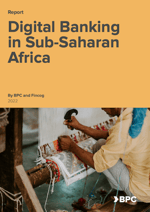Santiago Egas, Executive Vice President & Managing Director of BPC Americas, believes policymakers must allow digital pioneers to help rebuild economies, post-pandemic.
It’s been almost 10 years since the global Maya Declaration was signed in Mexico at a forum held by Members of the Alliance for Financial Inclusion.
The international signatories were central banks, banking system supervisors and other financial regulatory authorities – Mexico’s and several of its regional neighbours among them. Each committed to putting financial inclusion at the top of their national agendas through various measures, such as creating an enabling environment for new technology that could widen access and lower the cost of financial services for the world’s poorest people. But, in Latin America as a whole, two out of every five workers still don’t have a transaction or savings account, according to the World Bank.
As COVID-19 pushes many of the LATAM region’s economies to a precipice, Santiago Egas is becoming impatient. As the boss of Swiss payment technology giant BPC’s Americas operations, which stretch from Canada to the southern tip of Argentina, he has some strong views on how best to effect positive change.
“More than half of the region’s population is unbanked, not including the underserved who have limited access to financial services, credit, financing solutions or savings schemes,” Egas says. “Some cannot even get a prepaid card.”
And yet Brazil and Mexico have some of the highest rates of mobile and smartphone penetration in the world and the emergence of fintechs is fuelling innovation.
For years, governments and industry have talked about addressing financial inclusion; now it is the key issue across the region, particularly as it grapples with the COVID-19 pandemic.
“Many of Latin America’s economies were struggling even before coronavirus. More than ever, customers and businesses need access to finance to enable them to fulfil their economic potential,” says Egas. “Now is the time for technology to deliver the initiatives that have been discussed over the last decade. BPC’s mission is to have these services deployed quickly, efficiently and securely.”
That includes providing accessible and affordable banking services and enabling payments for feature phone or smartphone users who do not have a payment card. Other issues include how to provide services that reflect the user’s status, requirements and current benefits, and helping SMEs access working capital when they do not have an established relationship with a traditional financial institution.
“Financial inclusion makes the headlines, but the Maya Declaration is yet to make a significant impact on people’s lives,” says Egas. “The demand for innovation is palpable and the need for speed is evident across the region. It necessitates a collaborative approach between policy makers, financial institutions and fintechs.” Private enterprise, he says, can move quickly if allowed to do so.
Connecting physical and digital
From BPC’s South America HQ in Bogotá, Egas looks out over a city that has seen its poverty rate increase to 12.4 per cent, and with the Colombian economy heavily export-dependent, that’s likely to get worse. The prices of crude petroleum, coal, coffee and spices have all slumped during the crisis, with coffee prices down by almost 23 per cent so far this year. The whole region is suffering.
According to Egas, this makes it even more important for Latin American countries to leverage technologies to mitigate COVID-19-related economic contraction (expected to reach 5.3 per cent this year according to the UN) and spiralling unemployment, which will force many consumers and businesses to seek credit. Those without access to regulated financial services will have nowhere to turn but to unregulated lenders, charging what Egas describes as excessive interest rates.
Although it might be slower than he would have liked, progress is being made, however – and BPC is at the heart of it, connecting digital and physical environments. It’s not in the business of creating solutions for the sake of digital innovation, he says – rather, it is focussed on finding answers to critical issues.
The company is creating digital ecosystems that bring together banks, processors, merchants and governments to deliver relevant services to customers to fulfil their everyday financial lives. These services are realised through BPC’s SmartVista suite of applications that address three key (and related) areas: banking, mobility, and commerce. In Panama, its technology is at the heart of a national switch programme that has unified the payments systems of the country’s biggest banks and encourages people to open accounts as access to banks is eased. It also brings cost efficiencies for the banks as cash purchases are increasingly replaced by digital ones.
BPC is at the heart of the digital transition in terms of smart city transformation, too, and by providing digital payment platforms, particularly for small, one-person or family businesses at the vulnerable end of a very long supply chain. As such, it believes it can help governments across Latin America soften what will likely be a very painful ride over the next few years, post pandemic.
“We have already supported the national payments processor and switching company (Telered) in Panama and we are doing the same in Colombia,” says Egas. “We are also undertaking national projects in Ecuador and the Dominican Republic.
“We make an impact everywhere payments are present.”
He points to Colombia where BPC is involved in a new cashless ecosystem that sees travellers use digital wallets and QR codes to ride the bus network.
“This technology is being used in some parts of Europe but it is relatively new in Latin America and will transform the way people make payments, move around and live in cities,” says Egas. “It is making payments invisible, allowing users to pay with a tap of their mobile or card without having to work out complex fare tariffs and zones or queue at a desk or kiosk.”
Another concept with transformational potential is BPC’s digital business ecosystems, particularly those aimed at agriculture and which have already been successfully implemented in India. There, more than 75,000 farmers have signed up to BPC Marketplace Safal Fasal within the past five months. This platform connects buyers and sellers and improves the income of individual farmers by giving them access to multiple buyers; multiple input companies at reduced prices; financial services to include them in the real economy; and access to advisory services for more sustainable crop production. Buyers, in turn, benefit from access to a large and varied segment of farmers and their produce; ease of procurement and planning in a fragmented market; and better logistics and tracing and therefore a better and more balanced price with reduced risk.
Launched during the COVID-19 outbreak, Safal Fasal (Successful Harvest) marketplace has already succeeded in rebuilding broken supply chains that relied heavily on physical connections. The wider mission is to positively impact the lives of 10 million producers across the globe within the next five years.
Egas describes BPC’s marketplace ecosystem as having the potential to take digital banking for small businesses to the next level in Latin America, too, delivering real value beyond payment.
“Our marketplace platform connects everyone in a B2B ecosystem, from unbanked to banked users,” he says. “Small agricultural businesses often don’t have access to financial services or, if they do, they either lack trust in financial institutions or cannot afford their services. And when they need finance they are forced to pay high interest rates for loans that are too small for their needs.”
The marketplace can allocate personalised credit for working capital to all participants, including small retailers that need a loan to buy products from other participants. It also enables instant payment upon delivery – a new concept for farmers who previously had to wait for intermediaries to pay them, leading to financial insecurity. The ultimate objective is an end-to-end cashless process.
“It will be part of digital banking at the next level because the marketplace will have a loan component that bank participants are contributing to, with its own credit scoring based on purchasing or selling data and insights,” says Egas.
BPC has evolved from being a software company based on licensing models and standard products to catering for the specific needs of clients.
“We are deploying faster, scaling efficiently and providing flexible technology,” Egas concludes. “We are co-innovating, leveraging our new payment processing centre to serve the Latin America market. Our plan for 2021 is to establish additional processing facilities across the region and provide full software-as-a-service models and solutions to clients and partners. More and more, we take a partnership approach with added value services that help go to market faster.”
As published on Fintech Finance and the Fintech Magazine
